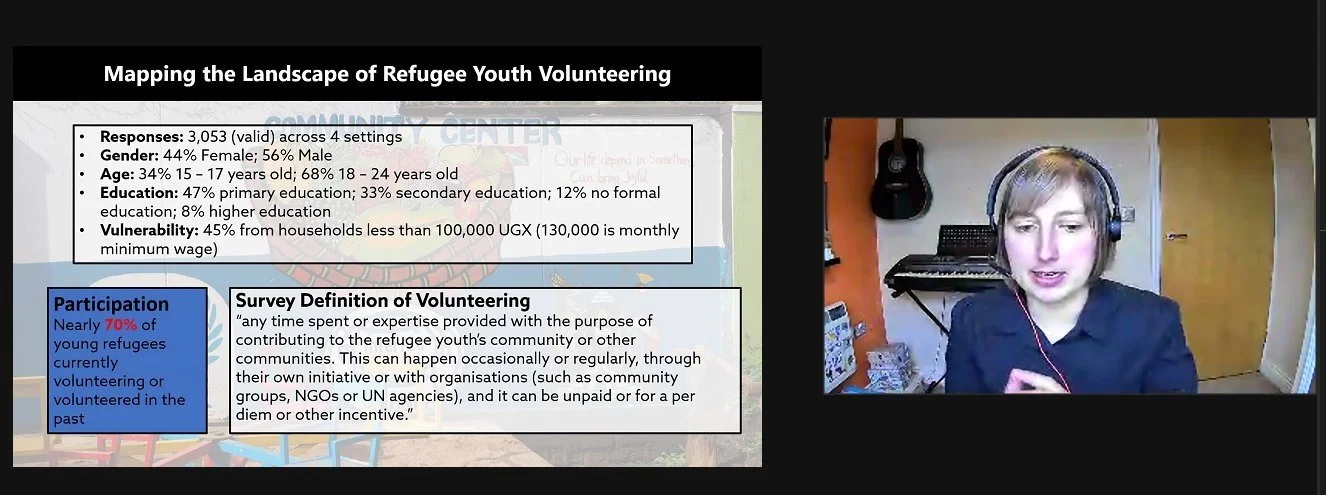RGS-IBG CONFERENCE 2021
The Annual International Conference of the Royal Geographical Society (with the Institute of British Geographers) took place online in 2021, between 30 August and 3 September and the overall theme was about borders, borderlands and bordering. The RYVU project was presented by team members in two different panels during the 2021 RGS-IBG conference.
On 31 August, Dr Sarah Mills led the presentation of the paper “Active citizenship and volunteering: young refugees in Uganda”, co-authored also by team members Prof Matt Baillie Smith, Dr Cuthbert Tukundane and Dr Moses Okech. As part of the panel ‘Active citizenship’, this paper discussed initial findings from the RYVU project by outlining the inequalities that young people encounter in accessing both volunteer and work opportunities in Uganda. It also explored the contested political and legal geographies of refugee rights in the context of volunteering, a practice often associated with ‘active’ citizenship which emphasises responsibilities rather than rights. Overall, the paper examined the everyday spaces where young refugees in Uganda volunteer and how these practices reveal wider geographies of citizenship ‘at the border’.
Dr Sarah Mills giving her online presentation during the RGS-IBG Conference
Later, as part of the panel ‘Geographies of Displacement’, Prof Matt Baillie Smith and Bianca Fadel presented on 2 September the paper “Volunteering and displacement: situating the voluntary labour of young refugees within humanitarian and development spaces in Uganda”, co-authored also by team members Dr Frank Ahimbisibwe and Dr Robert Turyamureeba. This paper has particularly focused on the ways young refugees’ voluntary labour articulates with the infrastructures and strategies of humanitarian and development programming that govern displaced populations in Uganda. By developing an account of the nexus of volunteering and displacement, the paper highlighted the importance of voluntary labour to understanding the geographies of displacement and, in particular, the experiences of young refugees in Uganda.
Both panels were well attended and included not only the paper presentations but also time for active discussion with participants. This conference opportunity allowed team members to disseminate early findings from the RYVU project to a wider academic audience and at the same time connect with peers doing research in related fields.

